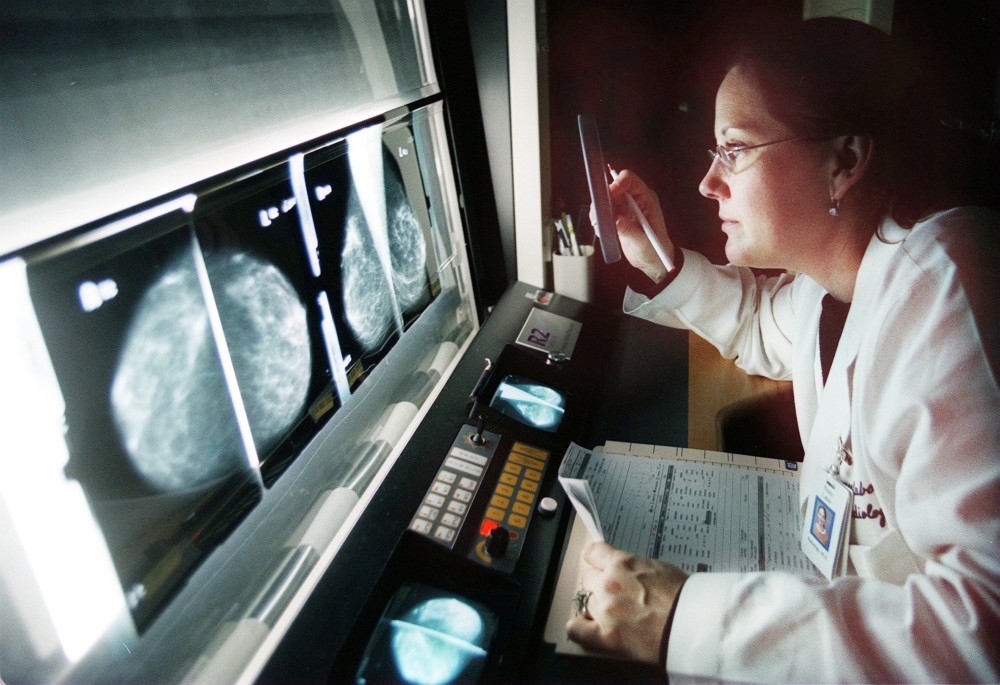By Susan Nielsen (OPINION)
The Oregonian, Portland, Ore.
Don’t be alarmed by the latest infighting among doctors and researchers about the value of mammograms in beating breast cancer. The conflicting studies and arguments are signs of a good scientific debate.
Yet this healthy debate could have an unhealthy local impact. More women in Oregon might decide to do nothing, and skip cancer screening altogether, in the face of dissonant medical advice. This is a distressing thought, given Oregon’s higher-than-average rates of breast cancer and its existing barriers to universal screening.
And let’s face it: Most of us are pretty good at neglecting our health without outside help.
This month, authors of a big new study in the British Medical Journal asserted that mammograms have limited value at saving lives and can lead to over-treatment. These assertions infuriated the radiology community, which questioned the study’s validity and re-iterated support for regular screening. One of the study’s co-authors then cast aspersions on radiologists for having a bias in favor of excess testing. (I stopped listening before they started insulting each other’s medical colleges.)
Meanwhile, advocates bemoaned the negative effect of an anti-screening message.
“I think it will have an impact. And I think it does add to the confusion,” said Gail Brownmiller, director of community programs for Susan G. Komen’s Oregon and Southwest Washington affiliate.
The barriers to getting a mammogram, she added, are already substantial. “There are many reasons women put it off. Fear is one. Time, cultural differences, language barriers, they all contribute.”
A mammogram is an X-ray used to detect abnormalities in breast tissue. It is more fun than a colonoscopy but less fun than most other chores that define middle age. It’s also scarier than it should be: Heart disease kills a lot more women than breast cancer, yet breast cancer is the Big One that women worry about most. (In fact, women in their 40s overestimate their nearer-term risk of dying of breast cancer by about 20-fold, according to a study published in the Journal of the National Cancer Institute.)
Fear of bad news, combined with work and family obligations, encourages a certain kind of magical thinking around cancer screening. The logic, I can sheepishly attest, goes like this: 1) I don’t have time to get sick, 2) it would be hard on my family if I got sick, 3) therefore, if I don’t go to the doctor, I won’t find out any bad news, which is the functional equivalent of not getting sick. Presto! Problem solved.
Discord in the medical community provides another convenient excuse for procrastination. The mammogram doesn’t get scheduled; the reminder postcard stays in the “deal with later” pile. This delay is precisely what alarms advocates and others on the front lines of cancer.
They know that the five-year survival rate for women is 99 percent when breast cancer is caught in stage one. That rate drops to roughly 24 percent by the time cancer has progressed to stage four. This is why the American Cancer Society still favors yearly testing for women beginning at 40, concluding that the risk of some unnecessary biopsies is worth the benefit of lives saved.
Yet doctors are indeed divided. The U.S. Preventive Services Task Force recommends mammograms every other year for women ages 50 to 74, and says regular screening for younger women should be based on individual risk factors. The National Cancer Institute favors mammograms every one or two years for women over 40. Added to the mix is this month’s study casting doubt on the value of mammography altogether.
Sorting through the evidence is daunting. Meanwhile, our feelings affect our interpretation of the facts, explains Dr. Lisa Rosenbaum, writing about breast cancer this month for The New England Journal of Medicine.
“We pick and choose evidence,” Rosenbaum wrote, “that reinforces our sense of who we are.”
I’m not too troubled by the mammogram wars. The scientific community always fights over unsolved problems, and breast cancer has always inspired violent disagreements over diagnosis and treatment. The bickering reflects power struggles and big egos, true, but also a massive shared effort to find a cure.
Still, it’s all too easy to perceive a lack of scientific consensus as a lack of credible information, and then regard all medical advice with unhealthy suspicion.
And it’s strangely tempting to put off things are “just” for you, even when they can save your life.














































































































































































































































































































































































